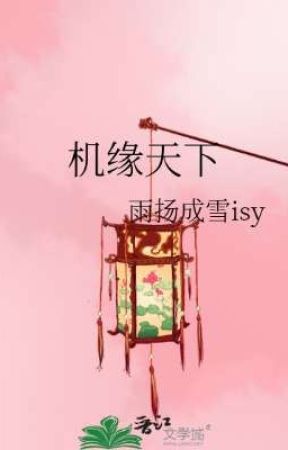Seeing the sincerity in Ding Qiyu's eyes, Lian'er felt touched by Qiyu's concern and sweetly nodded, agreeing not to insist further. After reminding Ding Qiyu to rest early, she returned to her room.
The next day, Ding Qiyu arrived early at the General's Mansion's small courtyard. As she prepared to change into her "work attire," she noticed that the clothes she had folded and set aside the previous day had been replaced with a new set of long robes. Even the laundering of work clothes was covered—what excellent employee benefits! Without overthinking it, she dressed, gathered her necessary items, and set off on her inspection route.
Before bed last night, Ding Qiyu had "previewed" today's plan, preparing to visit six shops in one day. Pawnshops and cosmetic stores didn't particularly interest her; she was mainly checking for any rule violations. What intrigued her most was a rice shop called "Fengdeng." According to the roster, this was the second-largest rice shop in Xingcheng, only surpassed by the "Wangsui" rice shop under the Jiangnan Fu family. If she couldn't visit Wangsui, Fengdeng wouldn't be far off in quality.
After inspecting a pawnshop and a restaurant—where she reminded the manager about the chaotic state of the kitchen—she headed to Fengdeng Rice Shop. Upon entering, the aroma of rice greeted her, and she surveyed the shop, which had neatly stacked burlap sacks of rice around its periphery. A wooden counter in the center was where customers could select rice, much like the setup in modern supermarkets, with compartments holding different qualities and flavors of rice.
A young attendant approached to greet her, and after stating her purpose, Ding Qiyu asked the shopkeeper, "Are the rice stocks directly sourced from outside or local farmers? Do you process any of it yourselves?" She wasn't sure how to describe the process, fearing the shopkeeper might not understand, so she added, "I mean, do you convert paddy into rice yourselves?"
The shopkeeper, a portly middle-aged man who clearly believed in "harmony brings wealth," responded warmly, "Yes, indeed. While we do import some varieties of rice with different flavors from outside, all Xingcheng rice is hulled and selected by us." He scooped up a handful of rice, "We pride ourselves on quality. You won't find a single impurity in our Xingcheng rice! To prevent impurities during transportation, we bring the paddy to our granary and select and hull it here. So, while our storefront may not seem large, there's more than meets the eye in the back!"
Ding Qiyu was delighted—another vertically integrated operation! She shared a laugh with the shopkeeper, "The shop's layout and the service are excellent. Please, show me this 'hidden world' in the back."
The production area in the back was indeed spacious, with many young workers diligently at their posts. Seeing Ding Qiyu's interest, the shopkeeper eagerly explained the process.
Once the sun-dried paddy arrived from the farmers, the first step was "paddy selection," where the grains were sorted by fullness into three grades: top, middle, and bottom, and stored separately in the granary. Observing the workers manually shaking large sieves to sort the grains, Ding Qiyu couldn't help but think this method was primitive and inefficient. A simple setup with a frame and crank handle could make things much easier.
The next step was "hulling," performed by strong laborers since it was very physically demanding. Each worker used a wooden device called a "rice pounder," similar in structure to a seesaw. A horizontal rod passed through a large wooden pillar, which served as the fulcrum, with the rod's ends supported by a wooden stand. One end of the pillar was under the worker's foot, while the other end held a heavy pestle. The worker would grip the handle, step down on the pillar, lifting the pestle, then release, letting the pestle strike the paddy in the mortar, separating the husk from the rice. The rhythmic "thud, thud" filled the air, with workers sweating profusely but never stopping. Ding Qiyu took notes, seeing potential improvements for this process. She thought that if she could one day become an influential mechanist, developing better production machinery would contribute to improving these laborers' working conditions.

YOU ARE READING
Fortune Across the World
Historical Fiction(MTL)#5 Title:机缘天下 作者 Author:雨扬成雪isy https://www.jjwxc.net/onebook.php?novelid=4020933 One-Sentence Summary: The story of a time-traveling female engineering prodigy building her career and finding love. **Synopsis:** Fate's fickle hand, a misplaced...
